This week’s post is my interview of Karen Kaplowitz, who I first knew as a business development coach for lawyers. Turns out she was also a real trailblazer for women in law practice, as you will see. If you prefer to watch the interview in convenient video format, you can find it here on my YouTube channel, That Non-Compete Lawyer.
Z: I’m Zach Wolfe. I’m here with my friend, Karen Kaplowitz. Karen, welcome.
K: Thank you, Zach. Thanks for inviting me to have this conversation with you.
Z: You’re welcome. So, let’s start with what you do today, and that is you are the founder and owner and operator of The New Ellis Group.
K: That is true. The New Ellis Group is a business development strategy and coaching firm, which I started in 1997 when I was a practicing trial lawyer in Los Angeles. So, for the last 23 years, I have been the owner, operator, proprietor, chief cook and bottle washer of the New Ellis Group.
Z: And that’s actually how I first met you. You were doing some business development coaching for a firm that I formerly worked for, and we had a firm retreat and you gave some great tips. And so I’ve kept in touch with you and gotten lots more great tips over the years. But what led me to want to do this was I started hearing some of your stories about law practice, law school, all kinds of things. So we’ll come back to the New Ellis Group later, but first let’s go back in time. It’s the late 1960s, and a young Karen Kaplowitz is a student at the University of Chicago Law School. Now, people who are not lawyers might not realize this, that is one of the elite law schools in the country. So, you’re a student there. And there were not a lot of women students at that time. What was that like?
K: I am a child of the sixties, which was a time, which was a lot like now in some ways. I started law school in the fall of 1968, the day after there were riots in Grant Park, in Chicago, in connection with the Democratic National Convention. It was a time of great political turmoil and crisis. Robert Kennedy had been assassinated that spring. Martin Luther King had been assassinated that spring. It was a time of chaos and violence and political upheaval. It reminds us a lot of what it’s like now, 50 years later. So, I’m about to celebrate my 50th law school reunion from the University of Chicago. But the struggle in those days, a lot of it had to do with the Vietnam War. And I was admitted to the University of Chicago Law School because of the Vietnam War. The University of Chicago saw that men were being drafted and decided that instead of having empty seats, they would accept women law students. My class, the class of 1971, was the first class at the University of Chicago Law School with 20% women law students. That’s how I got into law school. It was an economic decision on the part of the law school. So that’s where I fit kind of historically. And here we are, you know, 50 years later.
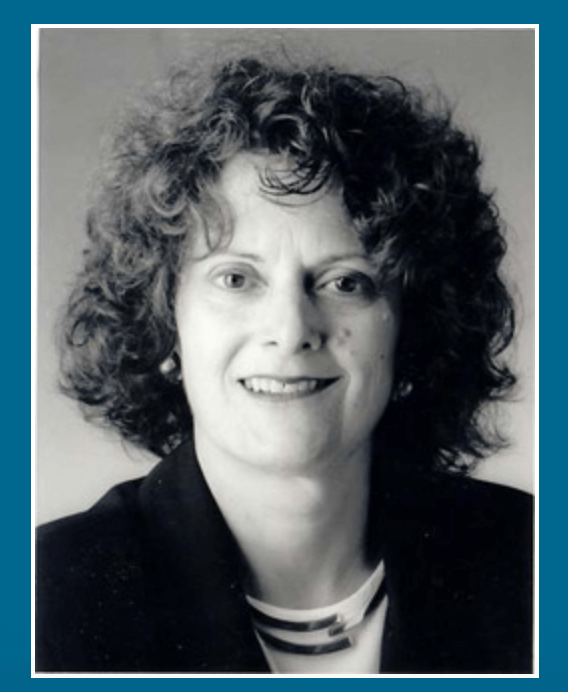
Z: When you started law school, what did you have in your mind that you wanted to do with that law degree?
K: I wanted to be a civil rights lawyer. I wanted to change the world. I wanted to create more racial equity in particular. I was just beginning to think about gender equity. That wasn’t as much on the horizon in those days, but I thought I’d be a civil rights lawyer or a legal aid lawyer. I didn’t expect to end up in a commercial kind of law firm environment.
Z: Speaking of gender equality, what was the on-campus law firm interviewing like for women at the University of Chicago in the late sixties?
K: Well, so that was one of the surprises. You know, there we were, there were 30 women in my class and maybe 15 or 20 in the class ahead of us and the law school had accepted us, but law firms weren’t hiring women lawyers yet in any great numbers. And so one of the things women in my class encountered was a lot of really overt sex discrimination. Law firms would show up and they’d just kind of blow off the women law students. And, you know, “we don’t really need to talk today.” “We’re not hiring trusts and estates lawyers this year.” “So there’s no point in our talking to you,” with the subtext, that the only reason we’d consider a woman would be for a trust and estates job. So that was pretty disconcerting. And we found to our dismay that when we took those experiences to the law school administration and said, this is what’s happening, please help us deal with it, the law school was pretty indifferent initially.
Z: And it turns out there was even a lawsuit, and there’s an opinion. People can actually read about this. And the case is called Kaplowitz v. University of Chicago [387 F. Supp. 42 (N.D. Ill. 1974)]. Now, would you happen to know the named plaintiff in that case?
K: Well, so when we experienced, when some of the women in our class experienced sex discrimination and the law school wouldn’t take action, one of my classmates who had just studied the new civil rights law, Title VII of the Civil Rights Act of 1964, said, “you know, the law school is acting like an employment agency, and don’t we have rights to enforce a non-discriminatory environment against a law school as an employment agency?” Ultimately we filed a Title VII charge, and then a lawsuit, asking the federal court to require the law school to protect women from overt discrimination.
Z: Reading that case, it seemed like the law school had a very clear written policy of non-discrimination. So if that was the case, what did the law school do wrong?
K: What the law school did wrong was failed to take action. When it discovered through complaints filed by women law students, that there was actual overt discrimination taking place on its premises, in connection with the recruiting function, having a non-discrimination policy that’s not enforced was not, to our minds, a sufficient application of the spirit of the law involved.
Z: The federal district court judge agreed with the theory that the law school was acting as an employment agency as defined in Title VII. So that was a win. And then I want to read just a little portion of the judge’s opinion. He said: “Sex discrimination is a bane to both men and women in this society, and to the extent that it is practiced by the employers who use the University of Chicago Law School placement facilities, it is a particularly ugly scar on the legal profession. In this decade of heightened consciousness, it is disheartening to note the degree to which sexism flourishes. It is prevalent in both professional and non-professional careers and all the more odious because of the subtle manner in which it is practiced.” That sounds pretty darn good. So you had the right judge, right?
K: And the judge by the way, was named Abraham Lincoln Marovitz.
Z: So Judge Marovitz ruled in your favor?
K: In some ways. This case, Kaplowitz v. University of Chicago, is a landmark case because it is the first case interpreting the scope of the employment agencies’ section of Title VII broadly. So, from that standpoint, it was a win. But the judge at the end of the day told the women in my class that we needed to exercise our rights against employers directly against the employers, and that we could not require a law school to hold hearings to make determinations. So we lost that part of our case. And at that point we took the part we won and we called it a day.
Z: It definitely set a precedent. And I imagine that even though you didn’t get the relief you were asking for in the lawsuit, this must have had ripple effects in the law school community.
K: For sure. This year is my 50th law school reunion. And we’re expecting to be doing a panel at reunion weekend in the spring on 50 years of women at the University of Chicago Law School, students, faculty, and alumni. So yes, we made our mark, elicited a lot of commitment on the part of the Law School, more of a commitment to gender equity. And that was at the end of the day, what we really wanted to accomplish.
Z: Now on just a personal level, when I think back to when I was in law school, I was just like, okay, just keep your head down. Don’t cause trouble, don’t make anybody mad at you, get good grades, get a job offer. I would be terrified to take on the entire law school and, and, you know, have people think, oh, that guy’s a troublemaker. Did those thoughts go through your mind at the time?
K: Well, you know, I didn’t act on my own. I was one of about 15 women law students who confronted the law school over these issues. And there’s safety in numbers. This was an era of protest and commitment to civil rights. I honestly really never thought too much that it would have adverse consequences, and the opposite turned out to be true. Because I was a leader of that group, I had a lot of interaction with the faculty and with the administration of the law school. And the Dean of the Law School taught me an incredible lesson about professionalism. You know, the Dean never held it against me—that I knew about anyway—that I had confronted the law school in this way and challenged their policies, and he went out of his way to be helpful to me. So that was kind of an interesting lesson on the outcome of being bold and of being courageous. It didn’t hurt. It probably helped me in my career.
Z: That’s great. Okay, so you graduate from law school and you start doing civil rights law?
K: No, I actually ended up deciding that before I became a civil rights lawyer, I wanted to get some conventional experience in a big law firm. And I joined what was then the largest law firm in Los Angeles, O’Melveny and Myers, where I was recruited by a University of Chicago alum who was very committed to bringing in more women. And I was the third woman lawyer at O’Melveny and Myers.

Z: So, I know what it’s like to be a brand-new lawyer at a firm with experienced lawyers who know what they’re doing, and you’re trying to figure out what to do. You had to do that while being just the third woman at the firm, right?
K: Well, what that meant though, was that there were people who mentored me, you know, like the lawyer who recruited me, he was a mentor to me. There were other people at that office in those days who cared about the idea of being more diverse. Warren, Christopher, who later became Secretary of State was a partner in the firm, for example. There were people of goodwill, in other words.
Z: That’s great. So back to the subject of civil rights, I understand there were issues early in your career with the LA County Women’s Jail. Can you tell us how did that come about?
K: O’Melveny and Myers absolutely supported lawyers doing pro bono work. And I took on a project to investigate and then challenge civil rights violations at the Los Angeles Women’s County Jail, along with the ACLU. I organized a group, there were about 25 lawyers involved, and we investigated civil rights violations. And then we brought a civil rights lawsuit against the Women’s County Jail. And this was all under the rubric of pro bono work at O’Melveny and Myers. That was a tremendous learning experience for me as a young lawyer.
Z: Was that the case where you had sort of a run in with the FBI, or was that another case?
K: No, ultimately, I didn’t have a run in with the FBI. I was a young lawyer. I was like a second year lawyer doing this civil rights work. And I made a really classical mistake of a young lawyer. My mistake was that one of the named plaintiffs in our civil rights case was a member of the Manson family, if you remember Charles Manson. So this woman who was an inmate at the Women’s County Jail was not one of the murderers. She was a burglar in the Manson family, and we included her as a named plaintiff in the case. And at the hearing, when we filed the lawsuit, there was a TRO hearing at which the County Counsel had to stop the rest of the hearing to explain to the judge that our plaintiff had just tried to escape from the Women’s County Jail and that she had a hacksaw blade, which he was sure must have been smuggled into her by one of her lawyers, pointing at me.
Now, the good news was the judge did not take seriously the idea that I had smuggled a hacksaw blade to this member of the Manson family, but my hearing on the TRO, you know, blew up, didn’t get too far. Fast forward a couple of years, and I get a call one day from the FBI. And the FBI is calling me around the time that Squeaky Fromme, another member of the Manson family, had tried to assassinate President Ford, and the FBI called to say, we got your name off a list that Squeaky Fromme had in her possession. And we’re calling to warn everybody whose name was on the list to be careful. And I said, if my name was on the list, it probably wasn’t an enemies list. I represented another member of the Manson family in connection with my civil rights case. So that was my contact with the FBI. The FBI was trying to protect me from a risk I probably didn’t have.
Z: When your named plaintiff escaped using the hacksaw, did she tie the bedsheets and climb out the window?
K: She didn’t escape, she attempted to escape.
Z: Oh, she attempted escape.
K: She attempted an escape and they confiscated her hacksaw blade.
Z: Got it. That’s just an amazing story. Now, you also had something early in your career involving the Beverly Hills Hotel?
K: Yes. So, you know, I’ve explained that I started my law career at O’Melveny and Myers, and I stayed there for three years. At the end of three years, I left and started a women-owned law firm in Los Angeles with two other women lawyers, one from Gibson Dunn & Crutcher, the other big firm in town, and the other from the State Attorney General’s office. And that was a law firm that was designed to handle civil rights cases. So, I started with an idea of civil rights, I went to O’Melveny and Myers for three years, and then I started a women-owned law firm to handle civil rights cases. And one of our cases was against what’s now probably still well-known, the Beverly Hills Hotel. Former President Trump had some alleged liaisons that took place at the Beverly Hills Hotel.
Well, in those days they had a bar called the Polo Lounge, and the Polo Lounge had a rule. The rule was a woman who was not escorted could not enter the premises. And the concept behind that rule was that if a woman was unescorted, she must be a prostitute. So, our law firm represented somebody, an unescorted woman who tried to patronize the Polo Lounge and was of course, escorted out. And we brought a lawsuit against the Beverly Hills Hotel on the grounds that that was sex discrimination. They couldn’t arbitrarily say an unescorted woman was not allowed on the premises. And we resolved that case quite quickly.
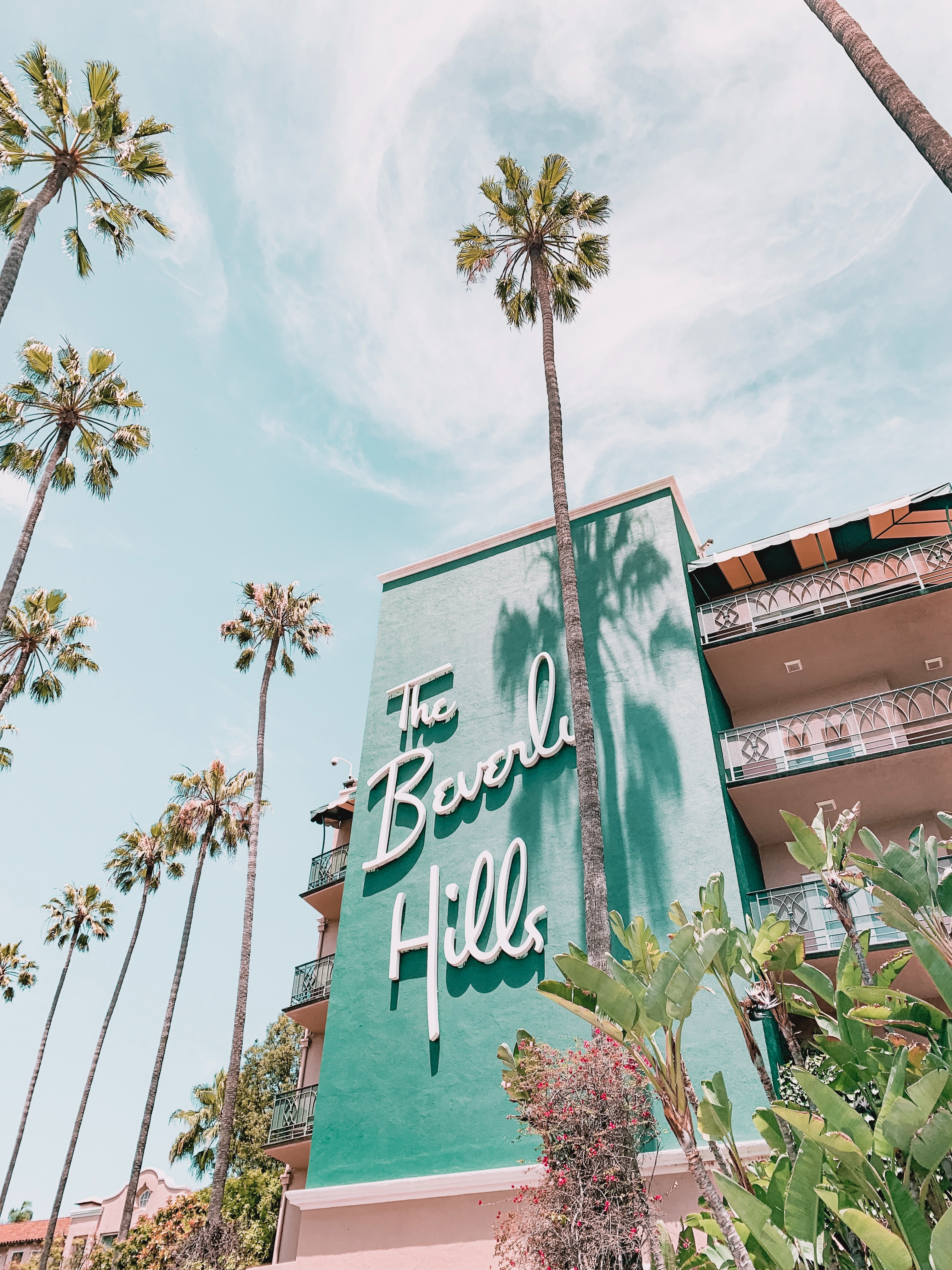
Z: So, you were at this women-owned firm in the mid-seventies in LA and you’re doing all kinds of different cases. This like sounds to me like basically a women’s version of LA Law. This has got to be made into a TV show.
K: We’ve been asked actually on several occasions to submit some information on our stories. One of my favorite stories I can share with you, in those days, was the lawsuit we brought against the California Court of Appeal. The court itself was advertising to hire a new deputy court clerk. And we had a client who had experience in the trial court level being a court clerk, who applied to become the deputy clerk of the court of the Court of Appeal. And the man who was the court administrator flatly turned her down, saying quite explicitly he would not hire a woman. So that was one of our very favorite cases. We brought a Title VII lawsuit against the California Court of Appeal itself. And again, the Court quickly settled that case because we kind of had them dead to rights. It was a pretty blatant act of sex discrimination.
Z: Now, again, in that case, you’re successful with the case, but did you worry about some kind of retaliation later on by, you know, judges or other lawyers who were not happy about this?
K: You know, we didn’t really worry about it. One of my law partners in those days had been in the State Attorney General’s office, and the offices of the California Court of Appeal were in the same office building as the Attorney General’s office. My partner knew justices on the California Court of Appeal. One day she was in the lobby of that building. One of the justices she knew well came over and started to give her a hug, and then he said, “oh no, I better not do that, you’re suing us”. So, you know, it was the right thing to do. It didn’t seem like it took a lot of courage to do it. It needed to be done. It was simply the right thing to do. And fortunately for us, we did not suffer any retaliation that I’m aware of.
Z: So then, I guess all good things must come to an end. You eventually leave that firm and you go to a bigger litigation boutique, is that right?
K: So after six years of our women-owned firm, my partners and I parted because we just had different interests. One of my partners became one of the most prominent family law attorneys in Los Angeles. I joined a twenty-five-lawyer litigation boutique and stayed there for close to 20 years.
Z: How did you end up becoming the marketing partner, in effect, for that firm?
K: When I joined the firm, I was of course used to running my own small firm and bringing in clients and managing client work. And that firm had a problem. The problem that my new firm had was that one lawyer, a very prominent trial lawyer, brought in most of the work in the firm, and that created a risk. That was a risk for everybody else because he was young and healthy. But if anything happened to him, if he got hit by a bus, the firm would have collapsed because there were 25 lawyers who mostly depended on a work he generated. So, I became initially really just the de facto go-to person to help any other lawyers in the firm who wanted to create more independence, wanted to create their own pipeline of clients and cases. So that’s kind of what I did, just to be a good team player and to fill a need.Over time, it became something I really enjoyed, which ultimately led me to start my consulting business.
Z: In addition to your consulting and helping people with business development, I know that you’re active in a number of nonprofit causes. I think one of those is Legal Momentum. Can you tell us a little bit about Legal Momentum, and what’s your involvement with them?
K: Legal Momentum is a women’s civil rights organization that was started 50 years ago. When I moved to the East Coast in 1998, after starting my consulting business, I began working on a pro bono basis for Legal Momentum and created what became known as the Aiming High Awards. The idea of the Aiming High Awards has been to recognize very powerful and successful business leaders who care about civil rights and would bring their companies and their business partners to an event to honor them and to support Legal Momentum. So, for the last 20 years, my core pro bono work has been raising money to sustain their work in women’s civil rights.
For example, one of the things that they are best known for is being an advocate for something called the Violence Against Women Act, VAWA. This is a law that was passed in 1994, which creates protection and has pumped literally billions of dollars into police departments and police programs to help support protection of women against domestic violence and other violence. So, that’s been a core part of what I’ve done on a pro bono basis. I don’t practice civil rights law anymore, but I found another way to contribute to the cause.
Z: And I think it was a few months back, I was able to watch these awards online. When is the next presentation of the Legal Momentum awards?
K: The next awards will be sometime this fall. We haven’t set the date yet. We will be honoring another group of people, including our Man of Distinction this year, the Chief Legal Officer and Secretary of Comcast, Tom Reid. And we’ll be honoring a group of people. I’ll be happy to let you know the date as soon as it’s set.
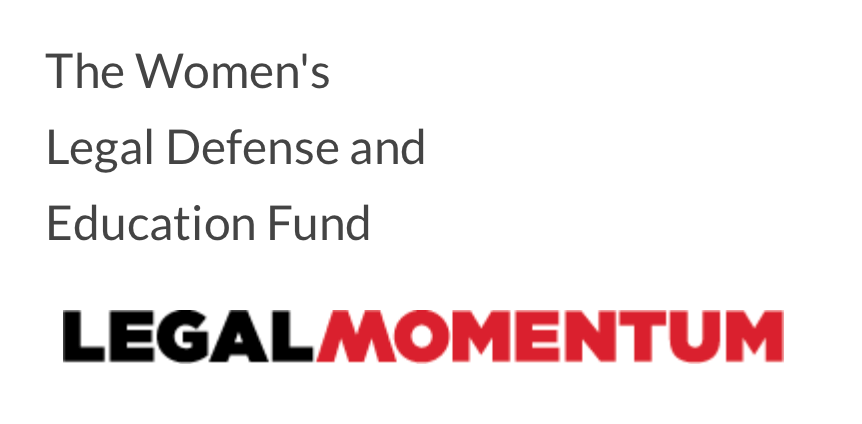
Z: Great. I’m sure people will be interested in that. So, you become sort of the marketing guru at this previous firm, but then at some point you decide to move on from the practice of law to full-time consulting to help lawyers. What was that like, starting your own consulting business?
K: You know, it felt like a leap because I had practiced law for over 25 years and that was kind of the core of what I knew. It was a little bit scary to do that, but when I thought about what interested me and what I wanted to do, I kept thinking back to my mother’s experience. My mother had been an immigrant born in Eastern Europe who came to the United States speaking no English at age 13. And I thought, okay, well, it’s a little bit scary for me to leave my secure job as a partner in a very successful law firm in Los Angeles and start a business, but probably not nearly as scary as being an immigrant, coming to a strange country and not speaking the language and having no resources. So, you know, that’s, that was kind of my reference point. My mother was my reference point. So when I started my business, I called it The New Ellis Group, Ellis being a reference to my mother’s experience, being an immigrant at Ellis Island.
Z: What a great inspiration for the name. Now I have to ask you this. What did your mother think when she found out you were going to be the plaintiff in Kaplowitz v. University of Chicago?
K: I’ll tell you what my mother thought when I left O’Melveny and Myers and started my own law firm. I don’t remember what she said about my lawsuit, but I do remember what she said about my leaving a secure job and starting my little law firm. She said, “are you crazy? Are you crazy? You went to the University of Chicago Law School, you have this fabulous job in a big law firm. And, you know, you get a paycheck.” I mean, you know, the paycheck in those days was probably $15,000 a year, but you know, that was a lot of money in the early seventies. And my mother was literally horrified, but she assured me that no matter what happened, she would always be there to support me.
Z: Well, that’s great. And that reminds me, what did the bank tell you when you went to get a loan to start your law firm?
K: Ah, yes. Well, so I had banked for the three years I was at O’Melveny and Myers at a bank called Security Pacific National Bank, which was later acquired by Bank of America. I’d been a loyal and, you know, creditworthy customer of Security Pacific for three years. And when we started our women-owned law firm in 1974, we decided we needed a line of credit. So I went to my bank, Security Pacific, and I said, may I please have a line of credit? I don’t even remember if it was for $10,000 or $20,000, whatever it was, it was a modest sum of money. And they said, of course, we are happy to provide you with a line of credit, provided that you deposit an amount equal to the line of credit in the bank and do not touch it during the term of the line of credit. And I said, if I had whatever the amount was, $10,000 or $20,000, to deposit in your bank account, I wouldn’t need a line of credit. That would be enough for me. I need a line of credit because I don’t have $10,000 or $20,000 just lying around. They turned us down.
Z: But you started anyway.
K: We did start anyway.
Z: Good for you. Well, when I first heard the story about your lawsuit back when you were a law student, you told me “being bold, never hurts.” What did you mean by that?
K: I meant that I’ve been lucky in my life that when I’ve done things that you might’ve thought were bold, like bringing a lawsuit against the Law School, or leaving a secure job and starting a women-owned law firm, or starting a new business doing business development, coaching, and strategy, I’ve been lucky that those things turned out well. I may have shared with you a story. As a young lawyer, I was aggressive, all the time, and had a lot of agendas, especially in the women’s rights arena. And about 20 years into my law practice, I ran into a judge before whom I’d appeared as a young lawyer, who had gone on to the Court of Appeal by that time. He was a very well known judge and I met him at some bar event or a cocktail party. And I said, you know, I want to share with you that I’ve mellowed, since you knew me as a young lawyer out there fighting the good fight in your courtroom. I’ve really mellowed a lot. And I’ll never forget his response. He said, “I’m sorry to hear that.”
Z: That’s great.
K: Yeah. So, I’ve been lucky. I’ve been lucky that the things that I’ve been passionate about and have advocated for and worked hard to accomplish, haven’t hurt me. That’s the good news. As I look back on 50 years of practicing law and look at, you know, this time period marked on one end by, you know, riots in Grant Park in Chicago and marked at the other end, by January 6th, the riots at the US Capitol, you know, I am saddened that more has not changed in these intervening 50 years, and that we are again, fighting to preserve our democracy, our rule of law, and I’m glad that I’ve had a small part in being part of a profession whose core commitment is to preserving the Constitution, preserving the rule of law, and preserving our democratic institutions. So, that’s kind of how I look back on these 50 years.

Z: Well, I think “small part” might be a little bit of an understatement. That is quite a career of accomplishment. So thank you for sharing some of those stories with me and with our audience. Before we wrap up, I just want to get back a little bit to your current consulting practice. I know that I’ve gotten so much great input from you on business development issues. What would you say makes your consulting approach different from some of the other coaches who are out there?
K: Thanks for asking. I would say that the one thing that I try hard to do in my coaching work is to help people figure out how to identify their best opportunities and how to integrate what they do in the realm of business development and marketing into their everyday work. So it’s not an add on, it’s not an extra burden, it’s part and parcel about how they go about their everyday opportunities. It’s a real privilege for me to have worked with literally hundreds of partners in law firms around the country to help them build their practices. And I’m glad to have run into you, and glad to have had the opportunity to work with you and your former law firm, and appreciate this opportunity to talk to you about work, law, and life in 2021.
Z: Well, I was so happy to do it, and if you are a lawyer looking for coaching, I highly recommend Karen. And if you’re not ready to take that leap, at least check out Karen’s newsletter, which is called what?
K: Monday Monday.
Z: Monday Monday, a great song and a great newsletter. It comes out usually once every two weeks?
K: Every two weeks. Right. People can go to my website, newellis.com, and they can sign up.
Z: And I recommend people do that. It’s concise, it’s fresh, it’s right to the point. It’s worth a few minutes, every two weeks to check it out, if you’re a lawyer who cares about business development. Okay. Thank you, Karen!
K: Thank you so much.
_______________________
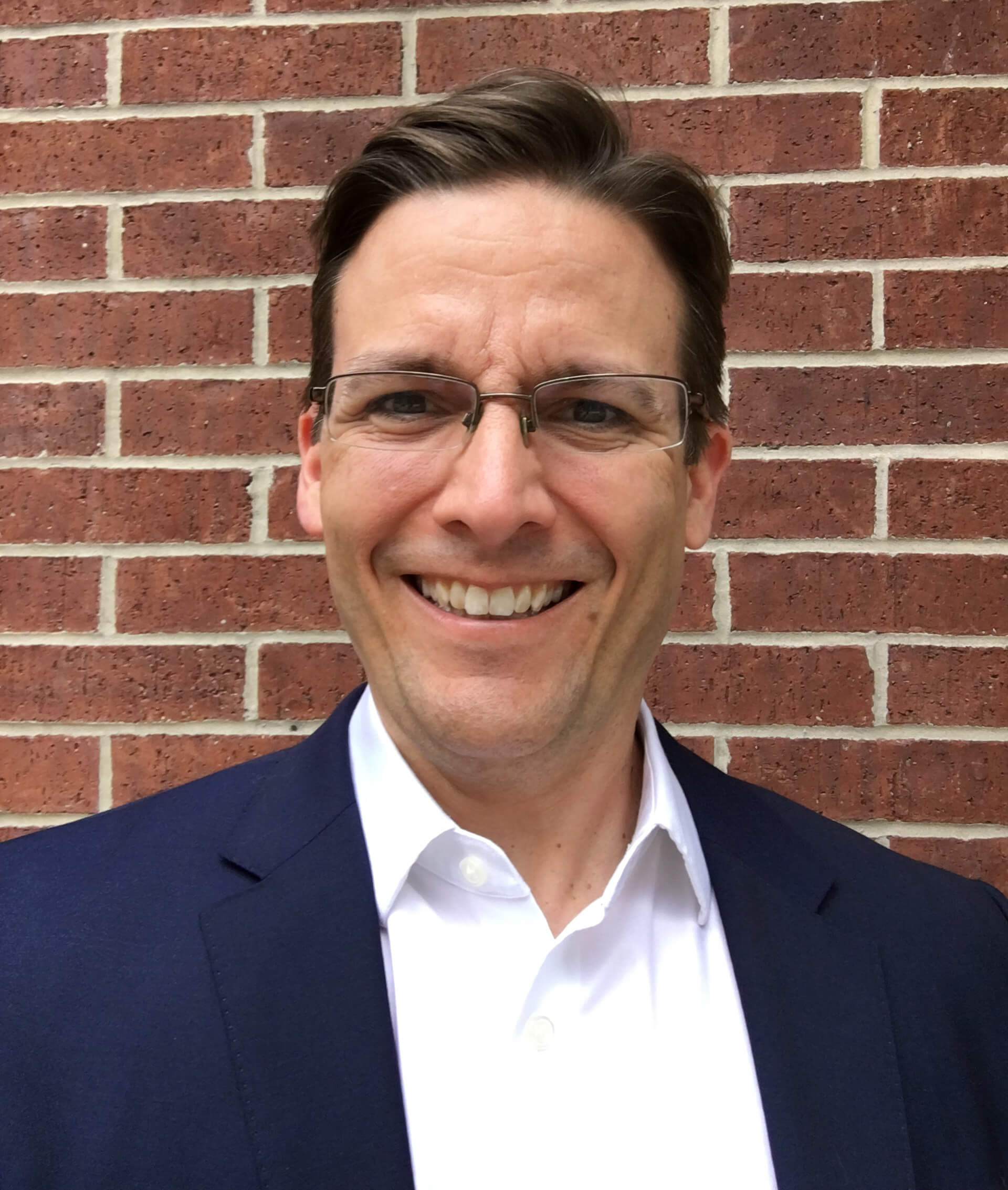
Zach Wolfe (zach@zachwolfelaw.com) is a Texas trial lawyer who handles non-compete and trade secret litigation at Zach Wolfe Law Firm. Thomson Reuters named him a Texas “Super Lawyer”® for Business Litigation in 2020 and 2021.
Disclaimer: Every case is different. Suing your elite law school in federal court may not achieve similar results.

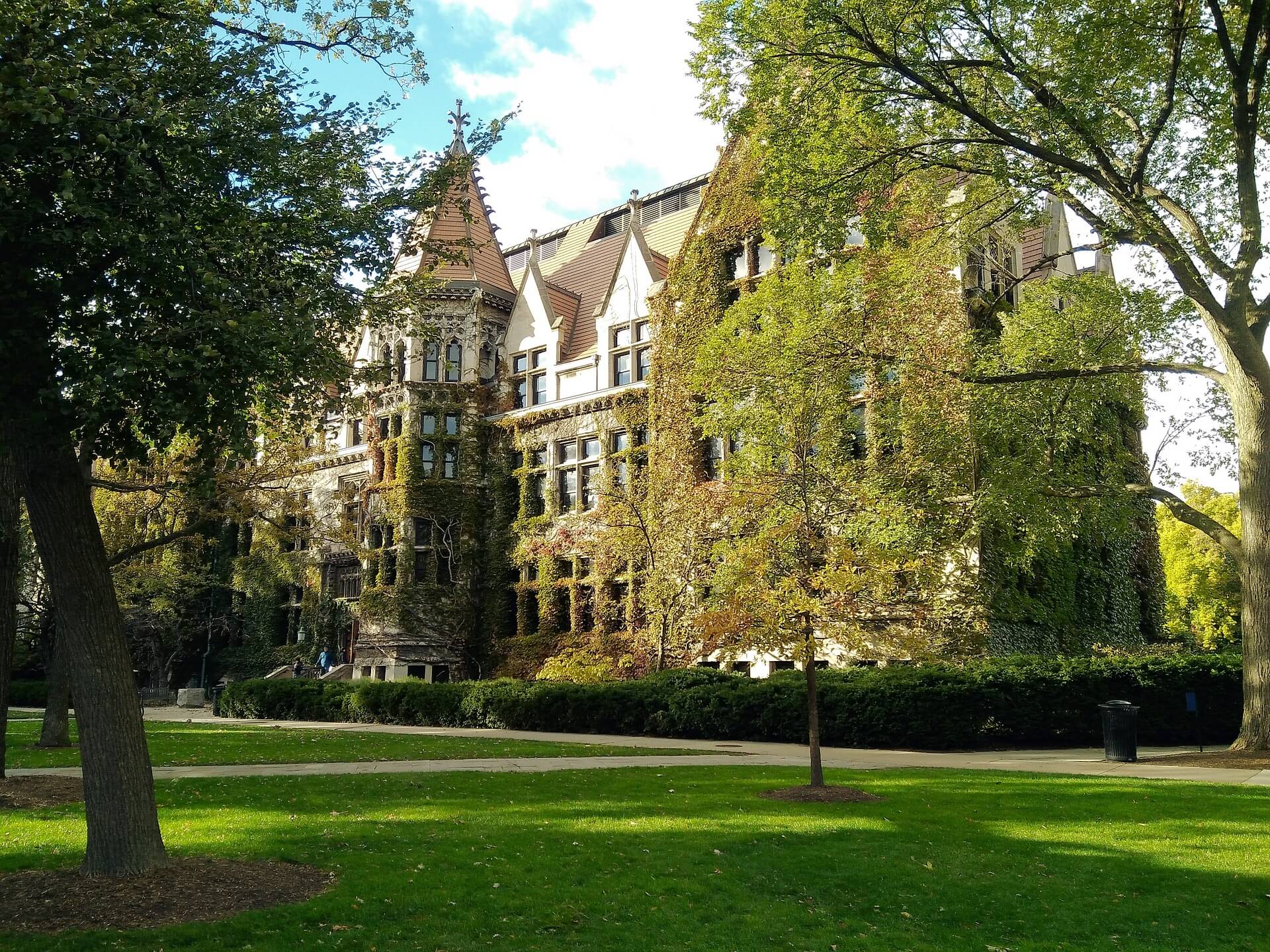
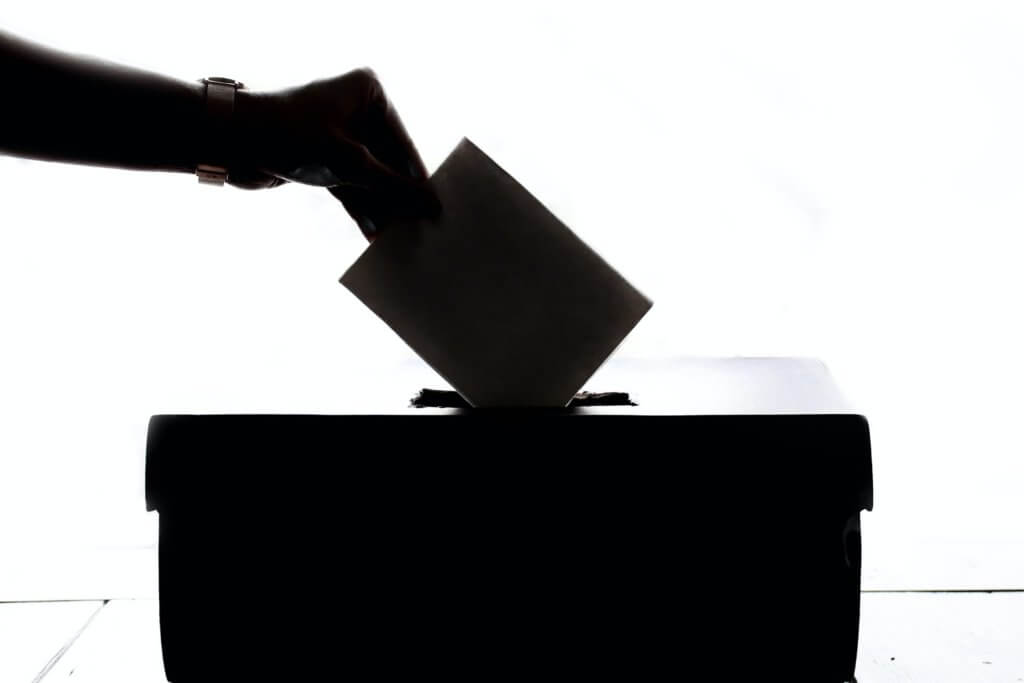
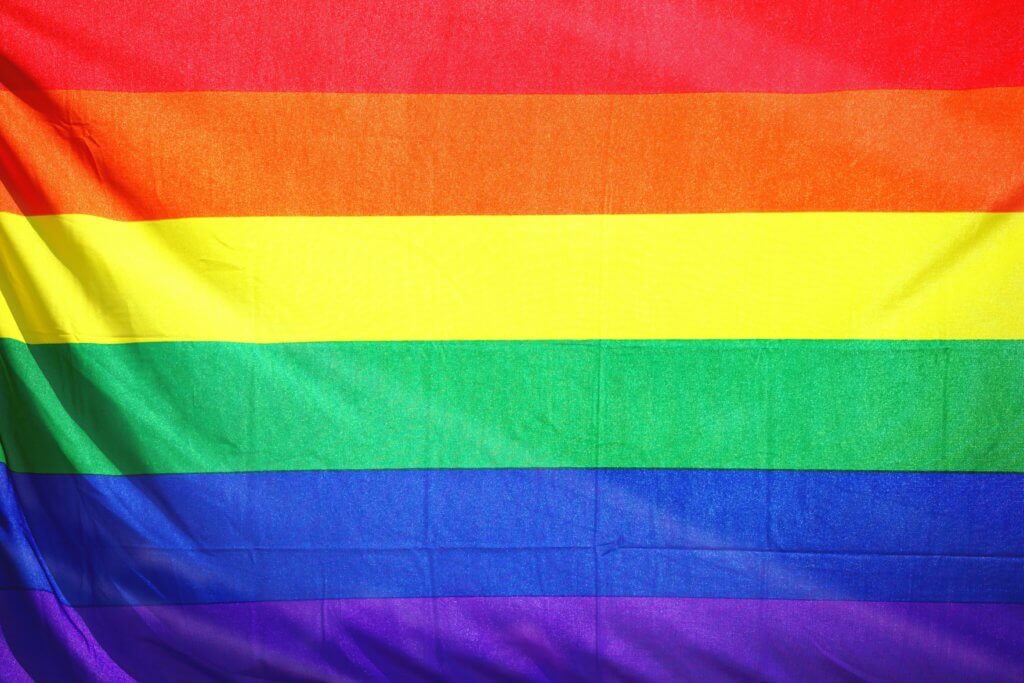
Leave a Comment